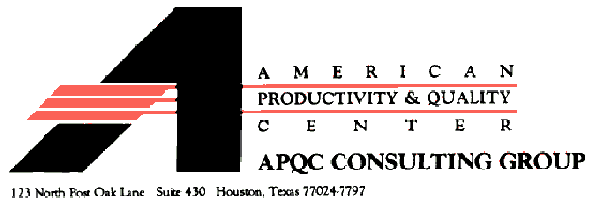The Benchmarking Code of Conduct

Preamble:
Benchmarking -- the process of identifying and learning from best practices
anywhere in the world -- is a powerful tool in the quest for continuous improvement.
To guide benchmarking encounters and to advance the professionalism and
effectiveness of benchmarking, the International Benchmarking Clearinghouse, a
service of the American Productivity & Quality Center, and the Strategic
PlPlanning Institute Council on Benchmarking have adopted this common Code of
Conduct. We encourage all organizations and individuals involved in bench-
marking to abide by this Code of Conduct. Adherence to these principles will
contribute to efficient, effective, and ethical benchmarking. This edition of
the Code of Conduct has been expanded to provide greated guidance on the
protocol of benchmarking for beginners.
BENCHMARKING CODE OF CONDUCT:
Individuals agree for themselves and their company to abide by the following
principles for benchmarking with other organizations.
1. Principle of Legality.
- 1.1 If there is any potential question on the legality of an activity,
don't do it.
- 1.2 Avoid discussions or actions that could lead to or imply an interest
in restraint of trade, market and/or customer allocation schemes,
price fixing, dealing arrangements, bid rigging, or bribery. Don't
discuss costs with competitors if costs are an element of pricing.
- 1.3 Refrain from the acquisition of trade secrets from any means that
could be interpreted as improper, includimg the breach or inducement
of a breach of any duty to maintain secrecy. Do not disclose or use
any trade secret that may have been obtained through improper means
or that was disclosed by another in violation of a duty to maintain
its secrecy or limit its use.
- 1.4 Do not, as a consultant or client, extend one benchmarking study's
findings to another company without first obtaining the permission
of the parties to the first study.
2. Principle of Exchange.
- 2.1 Be willing to provide the smae type and level of information that
you request from your benchmarking partner to your benchmarking
partner.
- 2.2 Communicate fully and early in the relationship to clarify
expectations, avoid misunderstanding and establish mutual interest
in the benchmarking exchange.
- 2.3 Be honest and complete.
3. Principle of Confidentiality.
- 3.1 Treat benchmarking interchange as confidential to the individuals and
companies involved. Information must not be communicated outside the
partnering organizations without the prior consent of the benchmarking
partner who shared the information.
- 3.2 A company's participation in a study is confidential and should not be
communicated externally without their prior permission.
4. Principle of Use.
- 4.1 Use information obtained through benchmarking only for purposes of
formulating improvement of operations or processes within the companies
participating in the benchmarking study.
- 4.2 The use or communication of a benchmarking partner's name with the data
obtained or practices observed requires the prior permission of that
partner.
- 4.3 Do not use benchmarking information or any information resulting
from a benchmarking exchange, or benchmarking related networking as a
to market or sell.
- 4.4 Contact lists or other contact information provided by the International
Benchmarkng Clearinghouse in any form may not be used for marketing
in any way.
5. Principle of First Party Contact.
- 5.1 Initiate benchmarking contacts, whenever possible, through a
benchmarking contact designated by the partner company.
- 5.2 Respect the corporate culture of partner companies and work within
mutually agreed procedures.
- 5.3 Obtain mutual agreement with the designated benchmarking contact
on any hand-off of communication or responsibility to other parties.
6. Principle of Third Party Contact.
- 6.1 Obtain an individual's permission before providing his or her name
in response to a contact request.
- 6.2 Avoid communicating a contact's name in an open forum without the
contact's prior permission.
7. Principle of Preparation.
- 7.1 Demonstrate commitment to the efficiency and effectiveness of
benchmarking by being prepared prior to making an initial benchmarking
contact.
- 7.2 Make the most of your benchmarking partner's time by being fully
prepared for each exchange.
- 7.3 Help your benchmarking partner prepare by providing them with a
questionnaire and agenda prior to benchmarking visits.
8. Principle of Completion.
- 8.1 Follow through with each commitment made to your benchmarking partner
in a timely manner.
- 8.2 Complete each benchmarking study to the satisfaction of all bench-
marking partners as mutually agreed.
9. Principle of the Understanding and Action.
- 9.1 Understand how your benchmarking partner would like to be treated.
- 9.2 Treat your benchmarking partner in the way that your benchmarking
partner would want to be treated.
- 9.3 Understand how your benchmarking partner would like to have the
information he or she provides handled and used, and handle and
use it in that manner.
